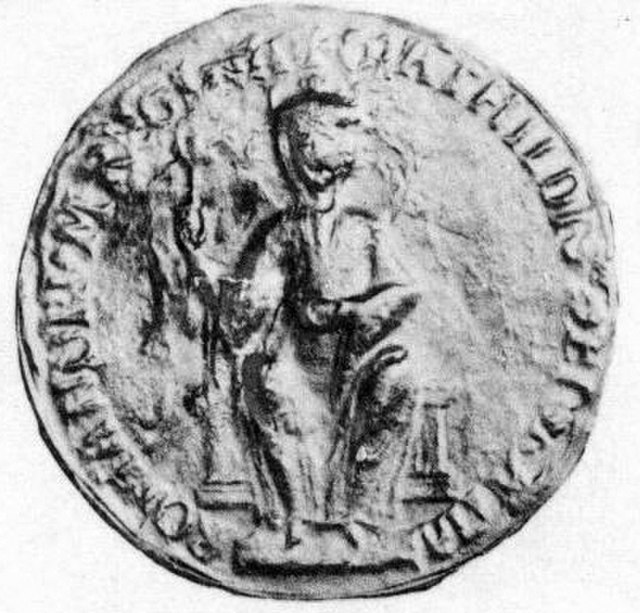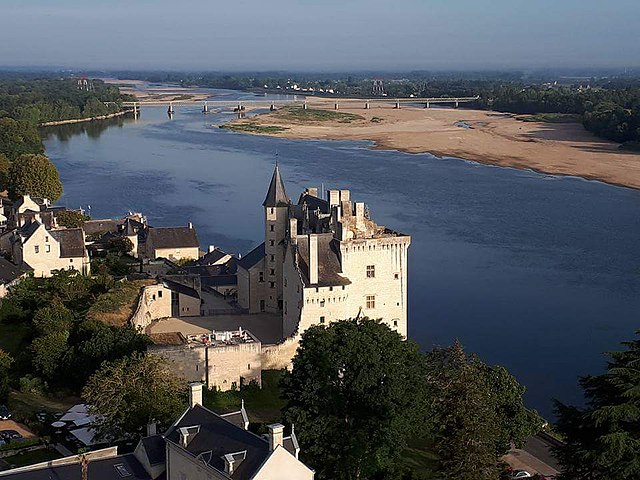Henry the Young King was the eldest son of Henry II of England and Eleanor of Aquitaine to survive childhood. In 1170, he became titular King of England, Duke of Normandy, Count of Anjou and Maine. Henry the Young King was the only English king since the Norman Conquest to be crowned during his father's reign, but he was frustrated by his father's refusal to grant him meaningful autonomous power. He died aged 28, six years before his father, during the course of a campaign in Limousin against his father and his brother Richard.
Illumination of Henry's coronation in the Becket Leaves, c. 1220–1240
At his coronation banquet, the Young King (top right) is served by his father, King Henry II (Becket Leaves, c. 1220–1240).
Drawing of the recumbent statue in Rouen Cathedral destroyed in 1733; from Livre du Millénaire de la Normandie (1911, after a drawing of c. 1700)
Tomb and effigy of Henry in Rouen Cathedral
Henry II, also known as Henry Fitzempress and Henry Curtmantle, was King of England from 1154 until his death in 1189. During his reign he controlled England, substantial parts of Wales and Ireland, and much of France, an area that altogether was later called the Angevin Empire, and also held power over Scotland and the Duchy of Brittany.
Contemporary depiction of Henry from the Gospels of Henry the Lion, c. 1175–1188
The great seal of Empress Matilda
The capture of Montsoreau Castle, next to the River Loire, in 1152 marked the end of the revolt organised by Geoffrey against his brother.
12th-century depiction of Henry and Eleanor of Aquitaine holding court








